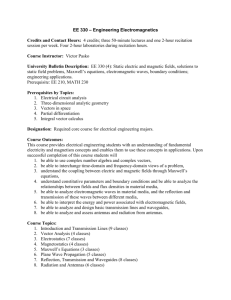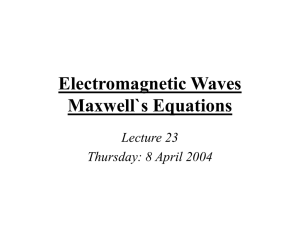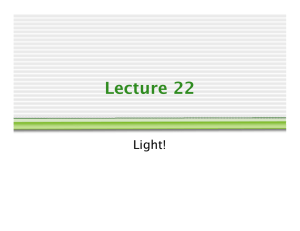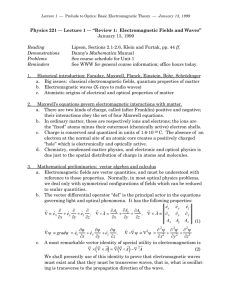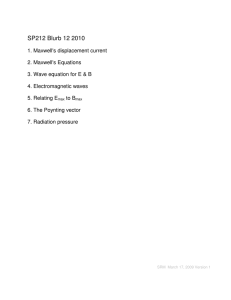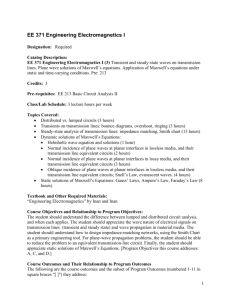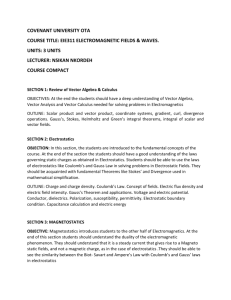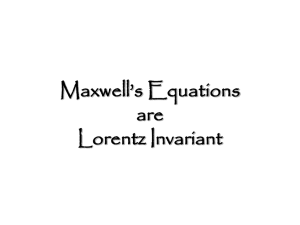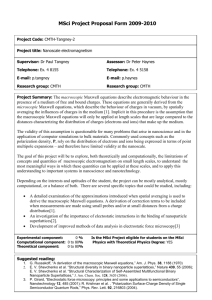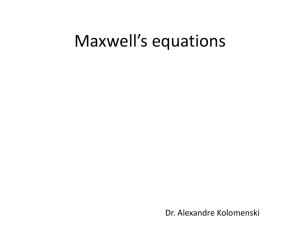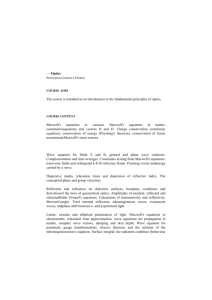Maxwell`s Equations and Electromagnetic Waves
advertisement
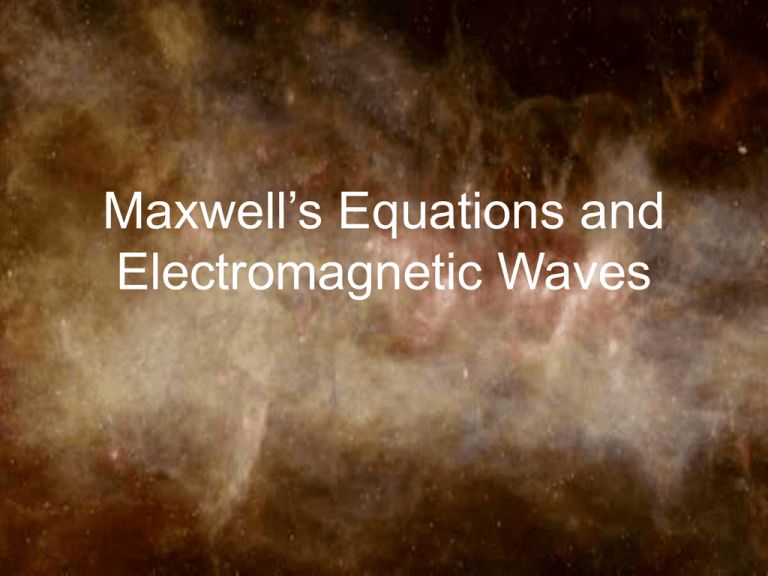
Maxwell’s Equations and Electromagnetic Waves Setting the Stage - The Displacement Current • Maxwell had a crucial “leap of insight”... Will there still be a magnetic field around the capacitor? A Beautiful Symmetry... • A changing magnetic flux produces an Electric field • A changing electric flux produces a Magnetic field An extension of Ampere’s Law... • Maxwell reasoned that Ampere’s Law would also apply to the displacement current. Bdl ( I I ) o displacement Clever application of Gauss’ Law here! d E dQ o I displacement dt dt Maxwell’s Equations (first glimpse) • Faraday’s Law: d Edl B dA n dt • Ampere’s Law: d Bdl I E dA o o o n dt Maxwell’s Equations – Integral Form • Faraday’s Law: • Ampere’s Law: • Gauss’ Law d Edl dt Bn dA d Bdl o I o o dt En dA Q E dA o B dA 0 Maxwell’s Equations – Differential Form E dA V Q dV V E o ( E )dV Q o Gauss’ Theorem – integral of a flux equals volume integral of divergence Maxwell’s Equations – Differential Form d Edl dt Bn dA d E dl ( E )dA dt Bn dA B E Stoke’s Theorem: “Integral t around the path equals flux of the curl” Maxwell’s Equations – Differential Form d Bdl ( B)dA o o dt En dA E B o o t Maxwell’s Equations – Differential Form E o B E t B 0 E B o o t The Wave Equation • How fast will a wave travel along a string of density ? Two Ways to M’Es… • Abstract: ( A) ( A) A 2 • Physical: – Imagine a plane wave of electric field in zdirection 0 E ( x, t ) 0 Ez ( x, t ) Go to Rob Salgado’s sim of this Moving Fields… • Moving E-Field leads to… • Moving B-Field leads to… It’s Alive! • Well, at least it’s a wave! Combining the last two equations leads us to: Ey 2 x 2 Ey 2 o o t 2 • example - consider the electric field part of an electromagnetic wave described by: E ( x, t ) Eo sin(kx t ) j Eo cos(kx t )k The Poynting Vector • Light waves (and all electromagnetic waves) carry energy EB u uE uB o c • A wave has an intensity I uaverage c Poynting Vector 1 Eo Bo I S av 2 o S 1 o EB Radiation Pressure • Light waves (and all electromagnetic waves) exert pressure I P c Accelerating Charges Radiate Power! • We can show (by dimensional argument) that an accelerating charge should radiate energy at a rate given by: 2 kq a P a 3 c 2 • More detailed argumentation reveals that a = 2/3
